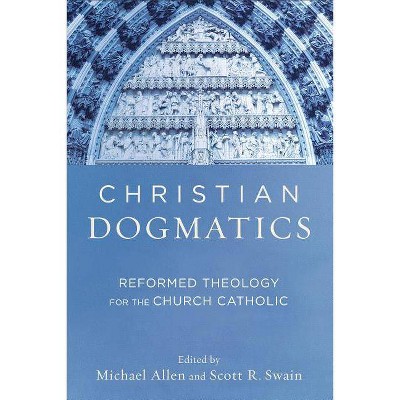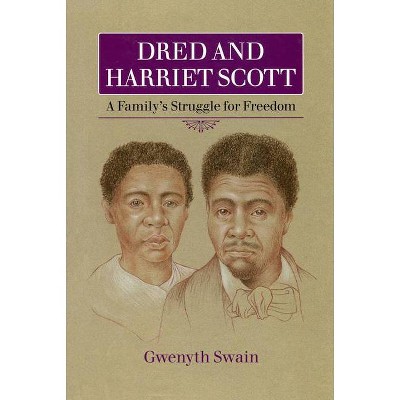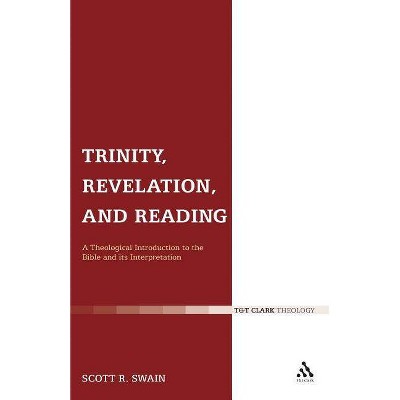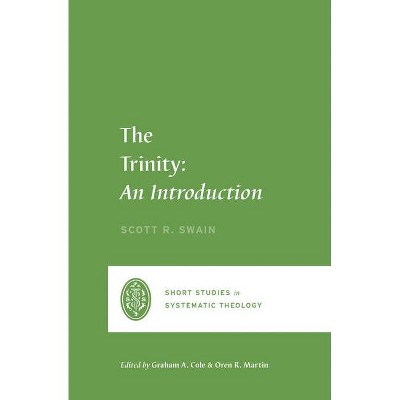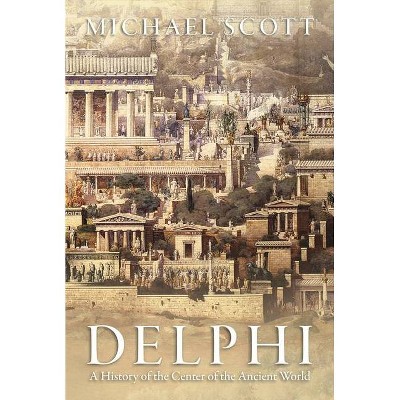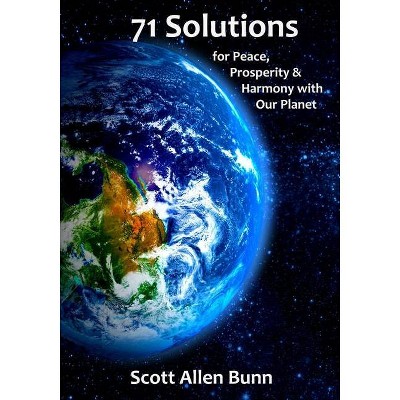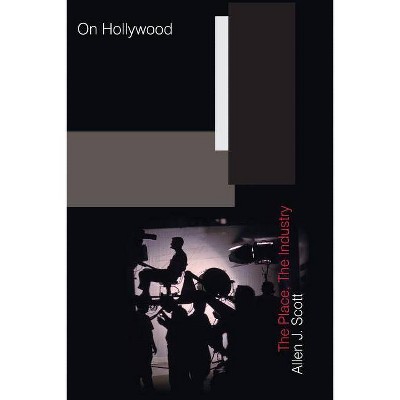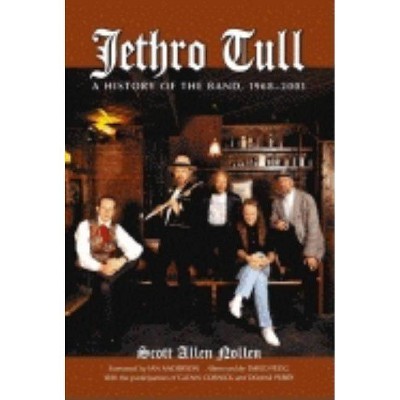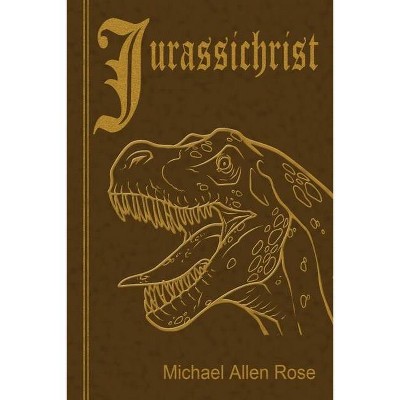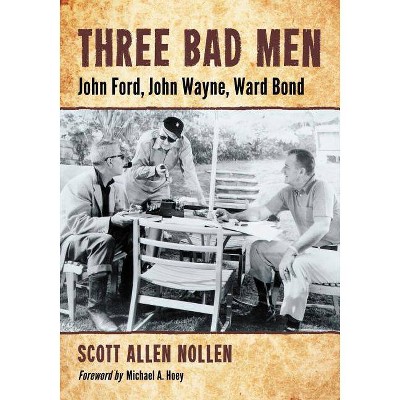Reformed Catholicity - by Michael Allen & Scott R Swain (Paperback)
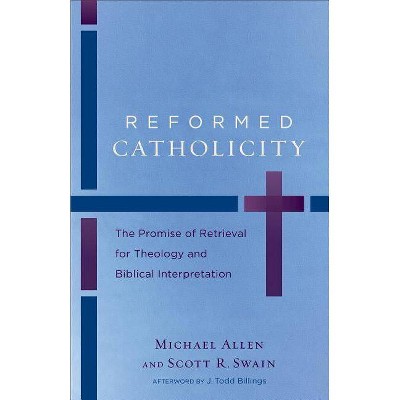
Similar Products
Products of same category from the store
AllProduct info
<p/><br></br><p><b> About the Book </b></p></br></br>This manifesto for a catholic and Reformed approach to dogmatics seeks theological renewal through the retrieval of the rich resources of the historic Christian tradition.<p/><br></br><p><b> Book Synopsis </b></p></br></br>Can Christians and churches be both catholic and Reformed? In this volume, two accomplished young theologians argue that to be Reformed means to go deeper into true catholicity rather than away from it. Their manifesto for a catholic and Reformed approach to dogmatics seeks theological renewal through retrieval of the rich resources of the historic Christian tradition. The book provides a survey of recent approaches toward theological retrieval and offers a renewed exploration of the doctrine of sola scriptura. It includes a substantive afterword by J. Todd Billings.<p/><br></br><p><b> From the Back Cover </b></p></br></br><b>"A bracing manifesto that sets out a clear pathway for the future of Protestantism"<br/></b><br/>"Intellectually alert and edifying Christian theology will be attentive to divine instruction in Holy Scripture and to its reception, transmission, and explanation in the writings of the apostolic church in time. This fine book explains why, with clarity, grace, and dedication."<br/>--<b>John Webster</b>, St. Mary's College, University of St. Andrews<br/><br/>"Allen and Swain here blaze an old trail in helpful new ways, correcting misinterpretations of what it means to be Reformed and in the process indicating a vital way forward for biblical interpretation and theology. I particularly appreciate the way they appeal to properly Protestant principles, like <i>sola Scriptura</i>, even as they urge us to thoughtfully retrieve and appropriate catholic tradition."<br/>--<b>Kevin J. Vanhoozer</b>, Trinity Evangelical Divinity School<br/><br/>"The notion of Scripture alone has come to be used in recent decades as a means of cutting off Protestantism from its own theological and ecclesiological history. The result is a faith that has too often proved fatally vulnerable to critique from Roman Catholics or degenerated into a theologically thin and ahistorical biblicism. In this densely argued but fascinating book, Scott Swain and Michael Allen demonstrate that classic Reformed Protestantism has an understanding of Scripture, of tradition, and of ecclesiology that anchors the Christian faith in biblical exegesis and at the same time provides the framework and the classical categories for avoiding both the Roman and biblicist options. Drawing on recent historical scholarship and engaging with contemporary Christian thought across the confessional spectrum, this is a bracing manifesto that sets out a clear pathway for the future of Protestantism."<br/>--<b>Carl R. Trueman</b>, Westminster Theological Seminary, Pennsylvania<br/><br/>"This manifesto embodies the Reformed catholicity for which it calls and for which many of us hope. Allen and Swain engage the catholic variety of today's efforts at theological retrieval <i>by</i> recovering key aspects of the Reformed tradition that biblically support and helpfully shape this pursuit."<br/>--<b>Daniel J. Treier</b>, Wheaton College<p/><br></br><p><b> About the Author </b></p></br></br><b>Michael Allen</b> (PhD, Wheaton College) is associate professor of systematic and historical theology at Reformed Theological Seminary in Orlando, Florida. <b>Scott R. Swain</b> (PhD, Trinity Evangelical Divinity School) is president and James Woodrow Hassell Professor of Systematic Theology at Reformed Theological Seminary in Orlando, Florida.
Price History
Price Archive shows prices from various stores, lets you see history and find the cheapest. There is no actual sale on the website. For all support, inquiry and suggestion messagescommunication@pricearchive.us
